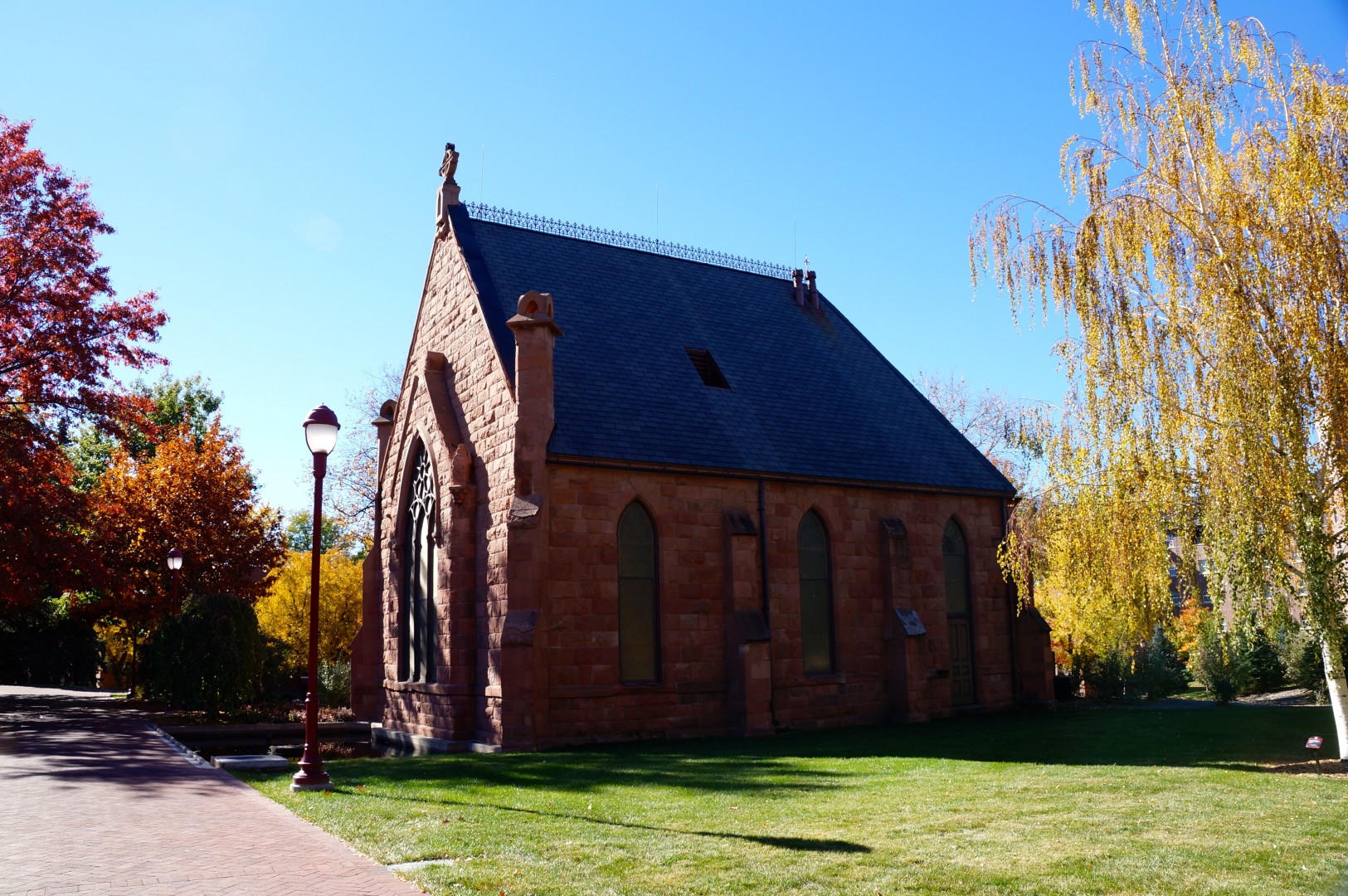DU has no religious affiliation, so sometimes it seems as if to truly embrace the complete college experience of ultimate freedom, DU leaves spiritual discovery and enlightenment to the students. This method proves to be beneficial to many, including myself, because as students, we are allowed and encouraged to explore different religious traditions, ideologies and cultures.
Recently, I have found that there are many opportunities to get involved with religion on campus, even if it may not seem as obvious as going to a religious service. These include a variety of different student alliances to join, lectures to attend and diverse members of the entire DU community to meet. One can also find many helpful pamphlets available in the brochure displays at Driscoll Bridge regarding different places of worship near campus, weekly religious services offered and more. While in Driscoll, students may also stop by the office of the school chaplain, Father Gary.
To me, it seems as if religion is viewed as an extracurricular activity at DU. Like any other non-scholastic activity—like a club, a sport or Greek life—religion is something you can choose to take part in. Unlike my Catholic high school, religion is optional here, and the members of the DU community respect that choice, which is something I’ve enjoyed.
Previously, I considered being Catholic such a large aspect of my identity that it was almost a part of my standard introduction: “Hi, I’m Maya; I’m from New Mexico; I’m Catholic.” Currently, though, for me, religious identity is a very vague concept. At times, I feel that being Catholic is perceived negatively on campus. Sometimes I have to reject an offer to go to dinner with my friends to go to evening mass, and, upon my explanation, I immediately feel a slight yet obvious shift, accompanied by a soft “oh,” as if attending mass is unthinkable and a waste of time. Even with something as minute as talking with someone about my Catholic high school, I feel a subtle judgement. Although I also struggle with my religious beliefs, I feel as if religion, even on a liberal college campus, is often approached as a foreign and exotic practice instead of an approachable and enriching experience.
I think the greatest conundrum surrounding religious life at a secular institution is that it is difficult to differentiate between being spiritual and being religious. I believe that nearly everyone is spiritual, but when consistent practice is considered, that is where the distinction is made evident toward religion. Furthermore, I have found that there is a greater risk of being offensive or insensitive in regards to religion rather than just spirituality. For instance, if a student talks to another student about meditation, there seems to be no boundary crossed, and the discussion continues as if they were bonding over a mutual love for a musician or movie. However, if a student were to ask another student about their religious identity, they would likely approach the topic with caution and not be as open for fear that each offends the other.
Being a freshman, I’m new to campus, so I do not feel as if I have the best judgement thus far, but it seems to me that the common trend with religion at DU is that of inactive participation. By that I mean students will support each other and attempt to understand different religions, but many do not participate themselves in structured worship.
Overall, it is important that DU fosters an accepting environment that encourages dialogue. In this way, I believe DU succeeds, and the school is willing to attempt to accommodate everyone. Although DU undoubtedly provides various opportunities for open integration of religious life on campus, I believe the seeming lack of religious presence on campus, as a whole, lies within student participation in religious activities. Technically DU has no control over this because religious identity is for the students to develop and explore themselves. Most importantly, DU continues to advocate for a community that is welcoming to differences in opinions and beliefs.










